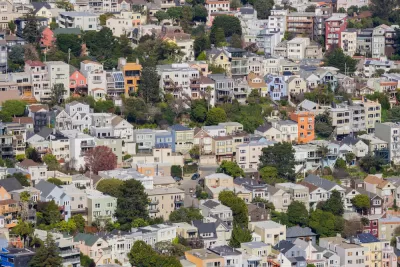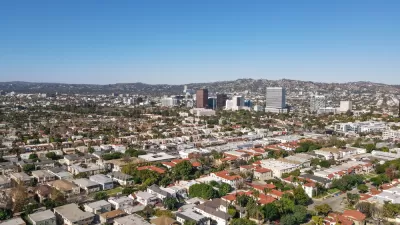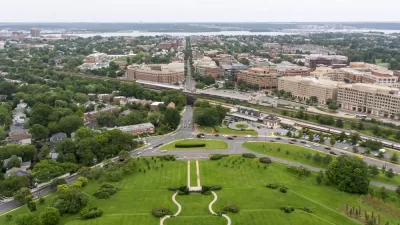California housing regulators have granted preliminary approval for the city of San Francisco’s housing element as mandated by the state’s Regional Housing Needs Allocation process.

State regulators at the California Department of Housing and Community Development have granted preliminary approval to the housing element of the city’s General Plan, reports J.K. Dineen in a paywalled article for the San Francisco Chronicle. San Francisco’s proposed housing element would allow planned capacity for 82,000 new housing units.
The city of San Francisco has become a symbol of the housing affordability crisis facing cities around the state and country, with some of the highest housing prices and a reputation for one of the strongest coalition of anti-development politics, otherwise known as NIMBYs, in the country. Other cities around the state have struggled to meet the mandates of the state’s every-eight-years Regional Housing Needs Assessment (RHNA) process. HCD in February 2022 rejected the housing element proposed by Los Angeles before approving an updated version in June. A tally in October counted two-thirds of Southern California cities failing to meet their RHNA deadlines last year.
Cities failing to meet RHNA standards exacted by HCD regulators face a loss of local control known as the “Builder’s Remedy.”
The San Francisco Board of Supervisors is scheduled to vote on the city’s new housing element on Tuesday.
As noted by Dineen, the approval of the housing element is “just the start of what will likely be an intense and politically controversial three-year process of rezoning entire neighborhoods in order to allow multi-family buildings.”
Specifically, the plan commits to an October 2026 deadline for a rezoning program that would allow at least 36,282 units. New regulations will need to be passed that will permit multifamily buildings — at least 20 units per acre — without the “discretionary review” process that is used to stall and kill many housing developments in San Francisco.
As noted by Dineen, the housing element’s call for 82,000 units is exceedingly ambitious compared to the city’s track record. The city has only averaged 2,550 units a year over the last two decades. Half of the planned units must be affordable to low- and moderate-income households, adding to the challenge for the city faces in achieving its housing goals.
FULL STORY: S.F.’s plan to build 82,000 housing units has been approved by the state

Planetizen Federal Action Tracker
A weekly monitor of how Trump’s orders and actions are impacting planners and planning in America.

Maui's Vacation Rental Debate Turns Ugly
Verbal attacks, misinformation campaigns and fistfights plague a high-stakes debate to convert thousands of vacation rentals into long-term housing.

Restaurant Patios Were a Pandemic Win — Why Were They so Hard to Keep?
Social distancing requirements and changes in travel patterns prompted cities to pilot new uses for street and sidewalk space. Then it got complicated.

In California Battle of Housing vs. Environment, Housing Just Won
A new state law significantly limits the power of CEQA, an environmental review law that served as a powerful tool for blocking new development.

Boulder Eliminates Parking Minimums Citywide
Officials estimate the cost of building a single underground parking space at up to $100,000.

Orange County, Florida Adopts Largest US “Sprawl Repair” Code
The ‘Orange Code’ seeks to rectify decades of sprawl-inducing, car-oriented development.
Urban Design for Planners 1: Software Tools
This six-course series explores essential urban design concepts using open source software and equips planners with the tools they need to participate fully in the urban design process.
Planning for Universal Design
Learn the tools for implementing Universal Design in planning regulations.
Heyer Gruel & Associates PA
JM Goldson LLC
Custer County Colorado
City of Camden Redevelopment Agency
City of Astoria
Transportation Research & Education Center (TREC) at Portland State University
Jefferson Parish Government
Camden Redevelopment Agency
City of Claremont





























